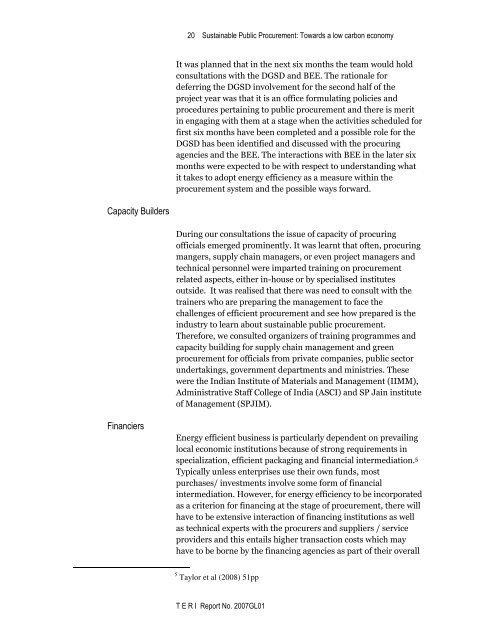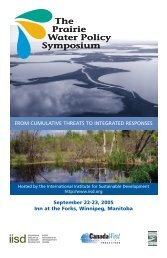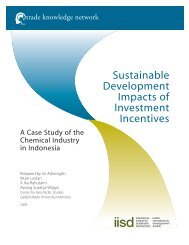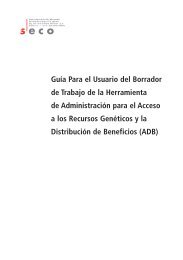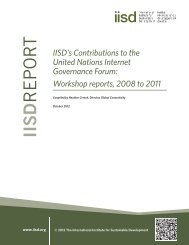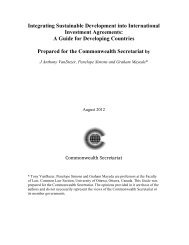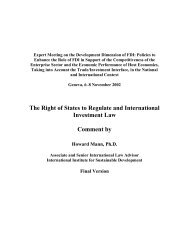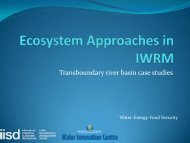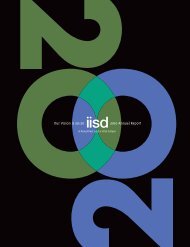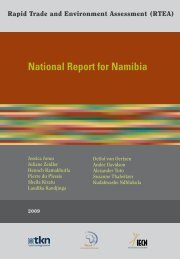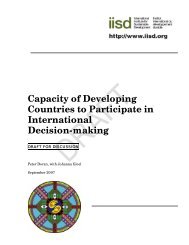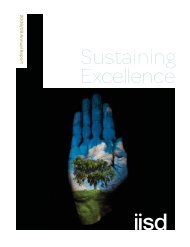Sustainable Public Procurement: Towards a lowâcarbon economy
Sustainable Public Procurement: Towards a lowâcarbon economy
Sustainable Public Procurement: Towards a lowâcarbon economy
Create successful ePaper yourself
Turn your PDF publications into a flip-book with our unique Google optimized e-Paper software.
20 <strong>Sustainable</strong> <strong>Public</strong> <strong>Procurement</strong>: <strong>Towards</strong> a low carbon <strong>economy</strong><br />
It was planned that in the next six months the team would hold<br />
consultations with the DGSD and BEE. The rationale for<br />
deferring the DGSD involvement for the second half of the<br />
project year was that it is an office formulating policies and<br />
procedures pertaining to public procurement and there is merit<br />
in engaging with them at a stage when the activities scheduled for<br />
first six months have been completed and a possible role for the<br />
DGSD has been identified and discussed with the procuring<br />
agencies and the BEE. The interactions with BEE in the later six<br />
months were expected to be with respect to understanding what<br />
it takes to adopt energy efficiency as a measure within the<br />
procurement system and the possible ways forward.<br />
Capacity Builders<br />
During our consultations the issue of capacity of procuring<br />
officials emerged prominently. It was learnt that often, procuring<br />
mangers, supply chain managers, or even project managers and<br />
technical personnel were imparted training on procurement<br />
related aspects, either in-house or by specialised institutes<br />
outside. It was realised that there was need to consult with the<br />
trainers who are preparing the management to face the<br />
challenges of efficient procurement and see how prepared is the<br />
industry to learn about sustainable public procurement.<br />
Therefore, we consulted organizers of training programmes and<br />
capacity building for supply chain management and green<br />
procurement for officials from private companies, public sector<br />
undertakings, government departments and ministries. These<br />
were the Indian Institute of Materials and Management (IIMM),<br />
Administrative Staff College of India (ASCI) and SP Jain institute<br />
of Management (SPJIM).<br />
Financiers<br />
Energy efficient business is particularly dependent on prevailing<br />
local economic institutions because of strong requirements in<br />
specialization, efficient packaging and financial intermediation. 5<br />
Typically unless enterprises use their own funds, most<br />
purchases/ investments involve some form of financial<br />
intermediation. However, for energy efficiency to be incorporated<br />
as a criterion for financing at the stage of procurement, there will<br />
have to be extensive interaction of financing institutions as well<br />
as technical experts with the procurers and suppliers / service<br />
providers and this entails higher transaction costs which may<br />
have to be borne by the financing agencies as part of their overall<br />
5 Taylor et al (2008) 51pp<br />
T E R I Report No. 2007GL01


